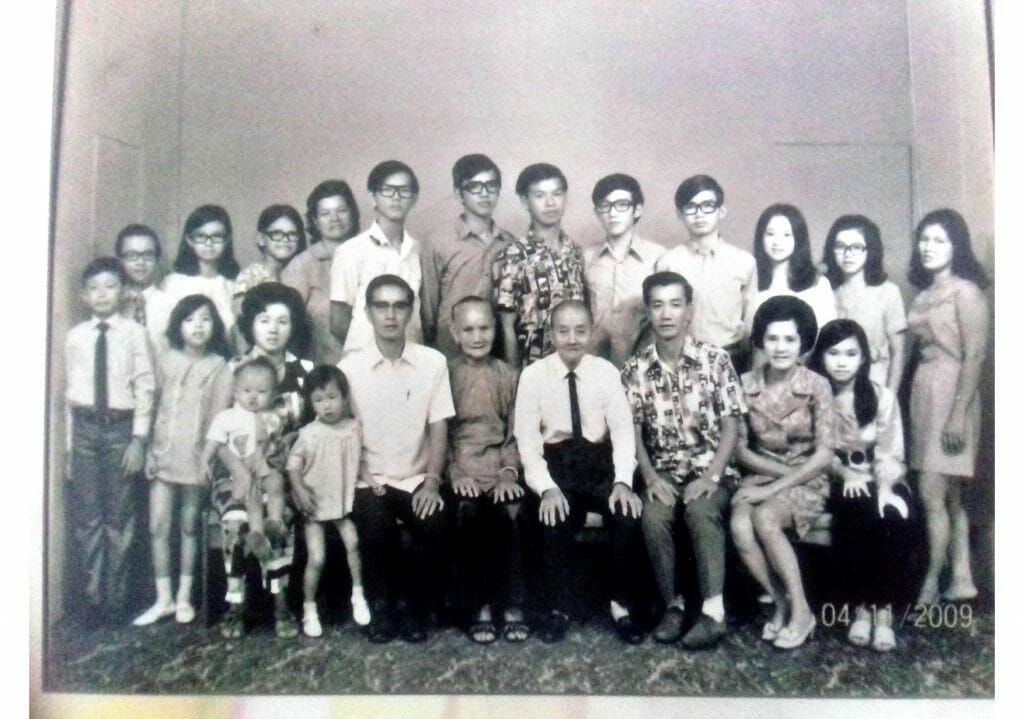
[Great grandmother with Grandpa and Grandma to the right of great grandfather. Mom is in the back row, second from right.]
A mother’s love is endless and unconditional. It can transcend time, generations, and even continents.
And one particular mother did just that. She sailed the waves of the South China Sea just to give her daughter a better life in Malaysia.
That woman is none other than my great grandmother, Lei Sam. This is her story.
In The Beginning
My great grandmother was born in 1889 to a farmer’s family in a little village of Kwangtung, one of the many provinces in China.
She had passed her youth as a simple peasant girl, doing housework, looking after her siblings, and helping out at the farm.
Then, at the tender age of 17, she was married to one of the sons of the Wong farming clans in the neighboring village.
Carried in a rickety wooden bridal chair, she stepped over the threshold of the Wong family home.
With her head covered in a simple red veil, she paid her respects to the gods, ancestors, and her in-laws by ‘kowtowing’ and offering them tea.
In the bridal chamber, the newly wedded husband lifted the bridal veil to see his bride’s bare face for the first time.
Lei Sam, my great grandmother gazed upon a handsome, scholarly young man. Wong Ho, my grandfather, was dumbstruck to see a strong and pretty woman gazing back at him.
And that’s how they got married in those days!
Tough Times…
A year passed by peacefully and Lei Sam gave birth to a baby boy.
What was meant to be a great joy for the household soon turned into sorrow when her firstborn soon fell ill and passed away. Her heart broke and she fell into despair.
Another year passed and again, Lei Sam delivered another baby boy.
By that time, China was in turmoil. Warlords were fighting for power after the last emperor had abdicated the throne. It was hard to make a living then.
Tragically, her second child did not survive. Lei Sam swore to herself amidst her grief that she would do all she could to keep her future offspring alive, no matter the cost.
By the end of the third year, Lei Sam delivered a baby girl. She was named Kuan Lin.
The turmoil that had hit China had worsened by then. The Wong family agreed that the young men should leave the village — this was to avoid being recruited by the warlords and to seek greener pastures.
So Wong Ho departed for Kuching, Sarawak to do carpentry work on the Rajah’s rural projects.
Journey to the South-East…
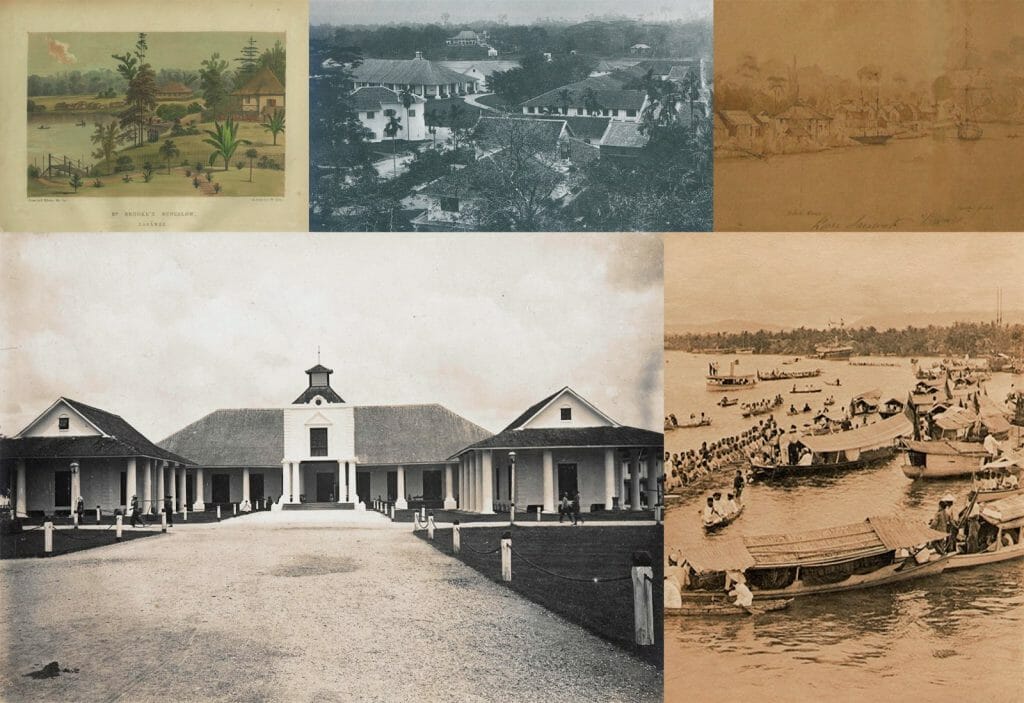 [Kuching waterfront. Images via Museum of Kuching]
[Kuching waterfront. Images via Museum of Kuching]
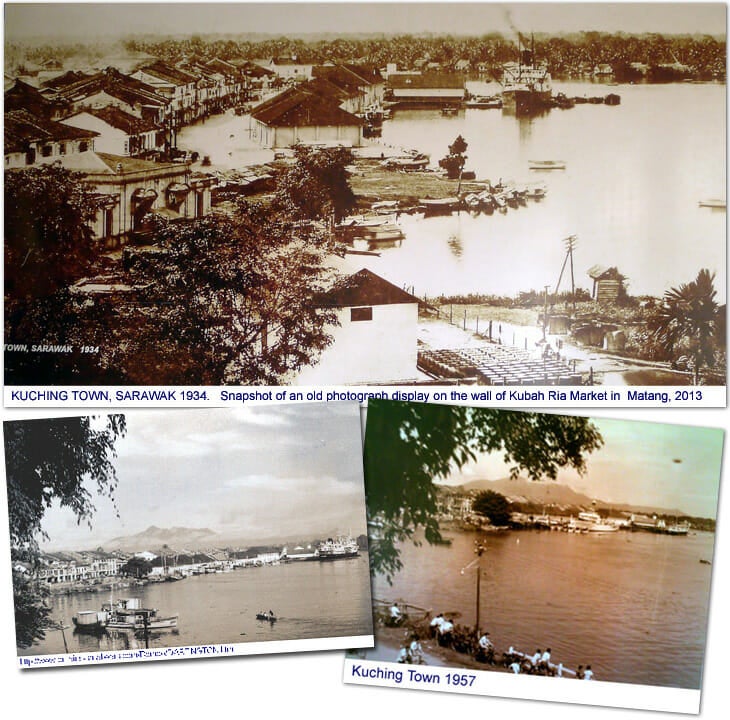 [Kuching in 1934. Images via Kuching Waterfront]
[Kuching in 1934. Images via Kuching Waterfront]
He promised to return as soon as possible; he wrote back and sent money to his family in Kwangtung regularly.
But days soon turned to months, and months turned to years. Life in Kwangtung was not getting any better. The warlords were still warring, and Lei Sam feared for her daughter’s safety.
So in 1920, Lei Sam mortgaged a piece of land that Wong Ho had bought for her. With that money, she hired a trader and bought herself and her daughter tickets to set sail for Kuching.
Mother and daughter huddled together in an extremely crowded and cramped junk to Kuching. Most of the time, they were seasick and were only allowed on deck when the sea was calm.
It took them one whole month, cramped in the holds of the junk before finally setting foot in the City of Cats.
Reunion…
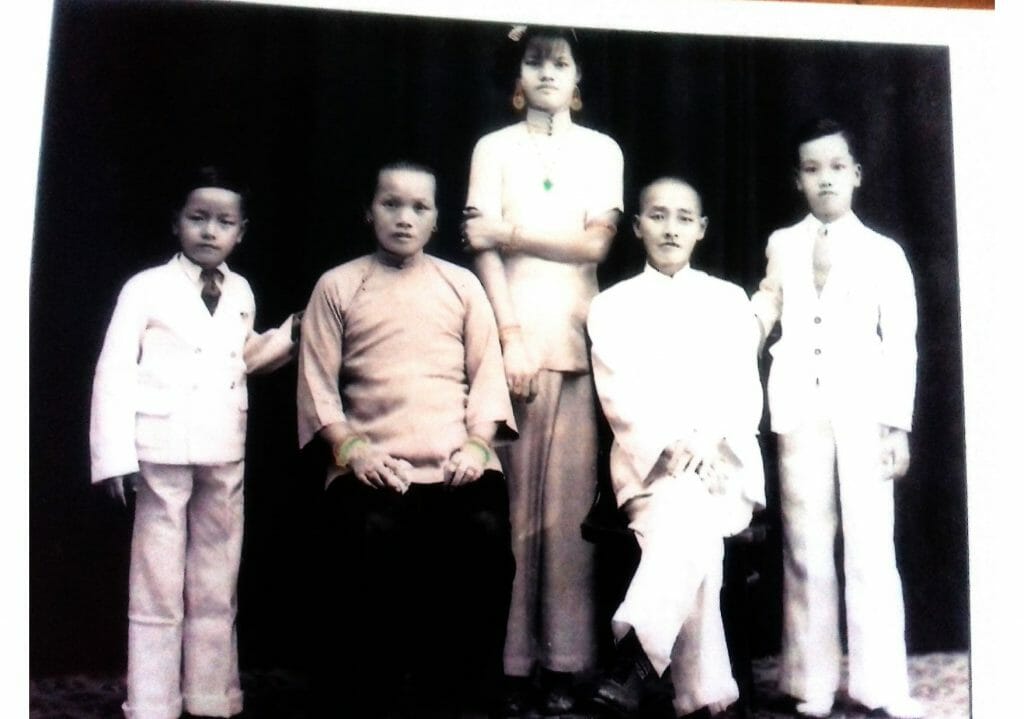
[Family photo with her husband and her children. Photo was taken in the late 1920s.]
The reunion between husband and wife was a teary one. They then planted their roots in Kuching and rented a room in Gartak Street.
Lei Sam learned to cook curry and would lovingly churn out goodies using the utensils that her husband carved out for her from her family.
She went on to give birth to a few more children, 2 boys, and two girls. One girl, to her anguish, had to be given up for adoption due to their poverty.
She raised the rest of her children the best she could. There was always firewood for cooking meals; she made sure all her sons attended school diligently.
If any child fell ill, she would stay up at night to nurse them back to health with traditional cures.
To help supplement her family’s income, Lei Sam also sewed buttons for the tailor downstairs and glued bags out of old newspapers for the sundry shops.

Life was hard but happy and full of love.
In The End…
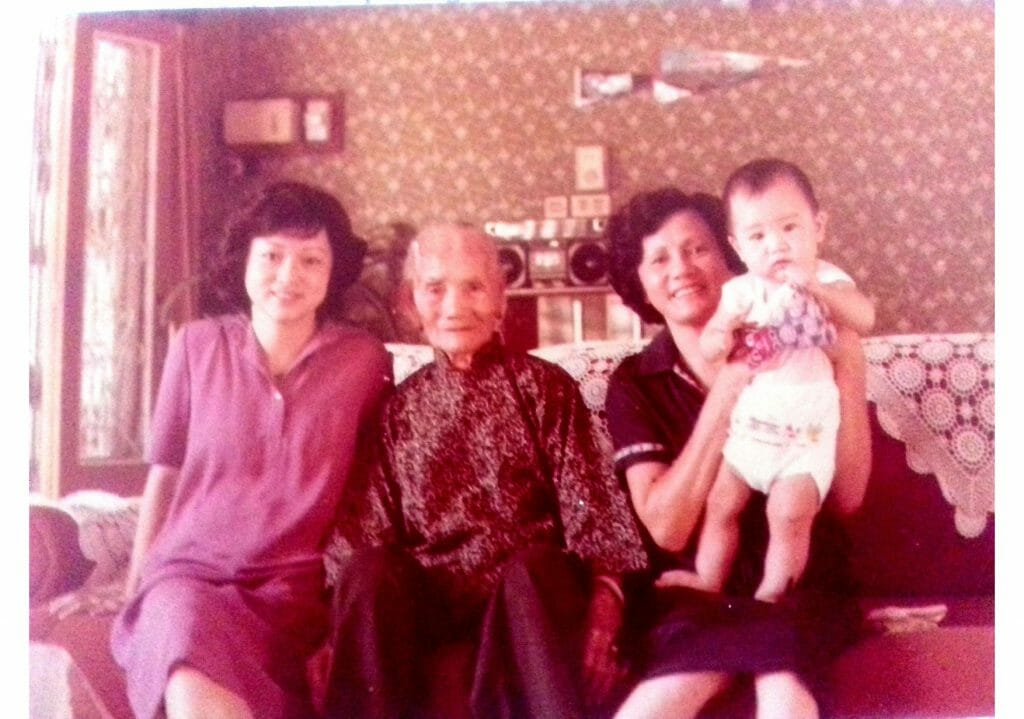
[One of the last pictures to be taken with her granddaughter (left), daughter in law, and great-grandson (right).]
Her children all grew up to have families of their own.
Now, it was a ritual for Lei Sam to bring a well-preserved pair of her eldest son’s pair of leather shoes for her grandchildren to see whenever they visited.
She was very proud of him for having been gifted the pair of shoes by the school for having excelled in his studies. To her, he had brought honor to the family.
She lived to see her grandchildren bear their own children before finally joining her husband in the afterlife at a ripe old age of 95.
Thus ended the life of a very resilient lady, one who did what any mother would, and that would be to give only the best for her children.
May we all appreciate all that our mothers have done for us, for there is no greater love than a mother’s love for her children. Happy Mother’s Day, Tai-Po.
For more stories like this, read: 5 Things Our Grandparents Did That We Don’t Do Anymore and 4 Older Malaysian Couples Share Their Secrets To A Long-lasting Marriage.

More from Real People
‘A RM100 fee cost a company 5 years of revenue’ shares M’sian
This story is about a Malaysian who learned that bureaucracy can be defeated simply by not arguing with it.A billing …
‘I quiet-quit, upskilled, and tripled my salary,’ shares M’sian engineer
This story is about a Malaysian who learned that loyalty without leverage leads nowhere in the corporate world.After years of …
‘I did everything right, and it still wasn’t enough’ shares M’sian graduate
This story is about a Malaysian graduate navigating big dreams in a job market where a degree no longer guarantees …















